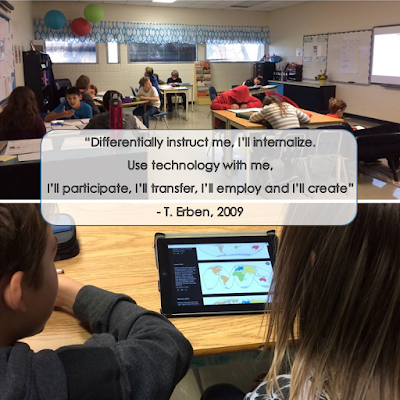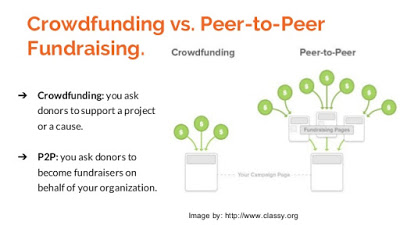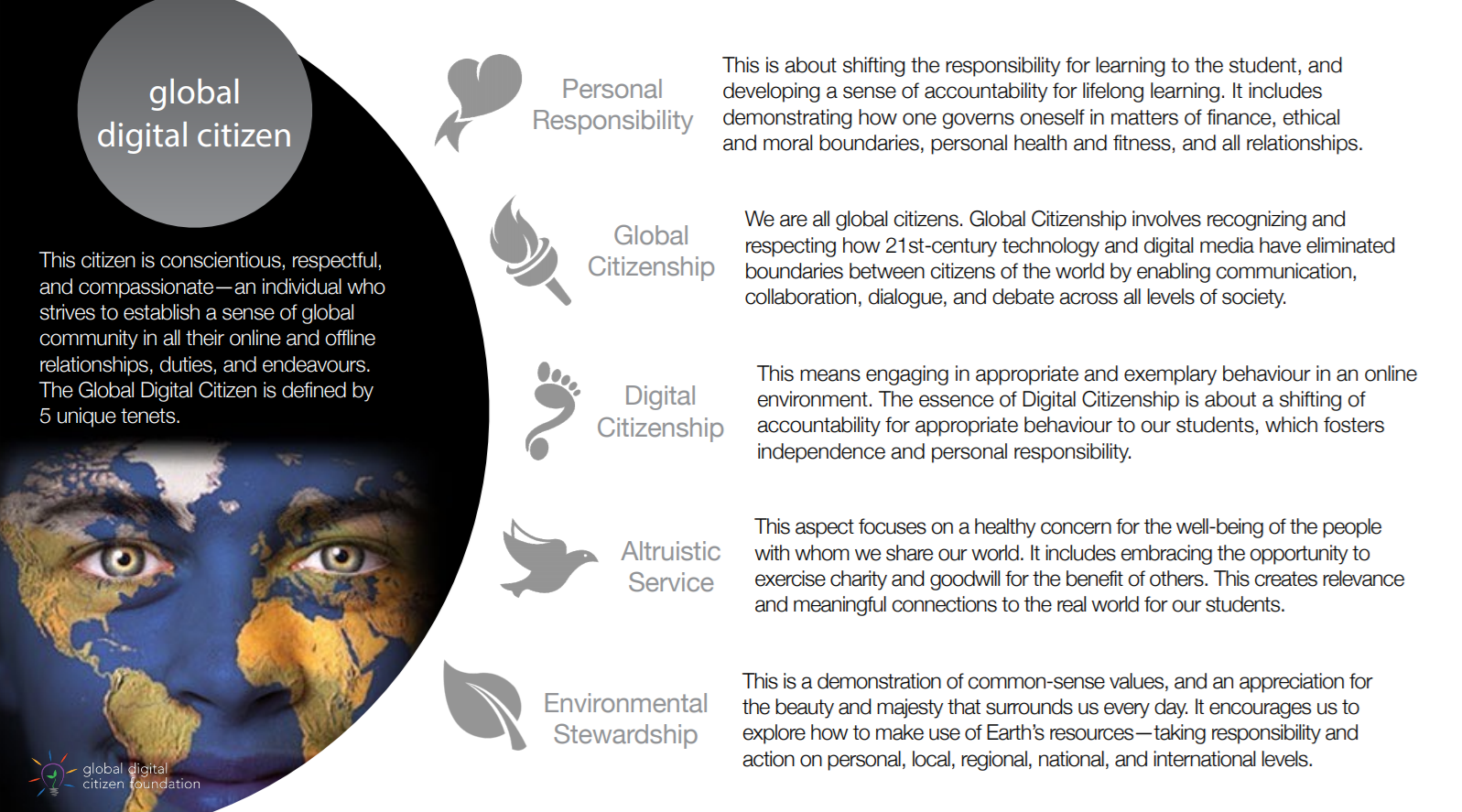The following is an IGNITE-style presentation I created for my Internet for Teachers course. We were tasked with selecting a topic of our choice related to education and technology that could be presented within the framework of an IGNITE presentation. If you are not familiar with what an IGNITE presentation is, speakers are essentially asked to discuss a topic within a 5 minute time frame using a series of visuals that automatically advance every 15 seconds. The result is fast-paced presentation that “ignites” the audiences’ thinking while requiring the speaker to think critically about their topic… Read More
Using Social Media for Online Learning
The following is a newsletter I created for my Introduction to Educational Administration course regarding the significance of social media and how it can be used by educators (specifically administrators) as a professional learning tool.
Reflecting on my Professional Learning Network (PLN)
When asked to reflect on my Professional Learning Network (PLN) for our Internet for Teachers course I must admit… I was frustrated and a little stuck on where to start. As someone who very purposefully began developing their PLN while in their undergrad degree I see my online networks as simply regular aspects of my life…. it was like asking me to reflect on the value of conversing with my colleagues while at work. So I started delving back into my blog posts to see how my PLN developed over the years and how my experiences… Read More
Internet for Teachers – Summary of Learning
The following is the summative project I created for my Internet for Teachers class. This narrative briefly summarizes some of the discussions we had throughout the course as well as highlights various tech tools that were shared through the semester. I can’t believe that the semester is already over as it seems like only last week I was sharing my thoughts on the beginning of the semester. What I enjoyed most about this course was being able to discuss the purpose behind educational technology and analyze aspects such as appropriate pedagogy, purpose, and affects. When I eventually complete my Masters… Read More
Why I Replaced Myself With A Machine
*This post has been written as part of my journey through my Master’s Degree in Curriculum & Planning through Brandon University This week our Internet for Teachers (#BU755) class looked at four different readings, two of which got me thinking about a recent change in my own classroom: JoolaLMS. (2017). Top experts predict what will transform elearning in 2017. Retrieved on November 21, 2017 from https://www.joomlalms.com/media/com_html5flippingbook/top_experts_predict_what_will_transform_elearning_2017.pdf New Media Consortium. (2017). NMC/CoSN horizon report > 2017 K-12 edition. Retrieved on November 21, 2017 from https://www.nmc.org/publication/nmccosn-horizon-report-2017-k-12-edition/ The first article identifies predictions from 14 different “ed tech” experts who share their… Read More
Internet for Teachers – Ed Tech “Meme”
Ed Tech Meme. (2017). Uploaded by Kirsten Thompson. Available online at: https://fishbowlteaching.com//2017/11/internet-for-teachers-ed-tech-meme.html Source Picture: Kirsten Thompson (Oct 12, 2017). Source Quote: Erben, T., Ban, R., & Castañeda, M. E. (2009). Teaching English language learners through technology. New York: Routledge Quote Justification: I chose this quote because I strongly believe that technology is capable of providing learning opportunities for students that were previously unavailable. Whether that is as simple as “hooking” a disengaged student, establishing cross-curricular applications, collaborating with others, or sharing original content. Image Justification: This is an original image taken from my Grade 7 Social Studies classroom. Students were using… Read More
Principals on Social Media: Why Should You Get Online?
Schools can no longer be autonomous organizations that operate behind closed doors. Schools are held accountable by a wide spectrum of diverse stakeholders that includes everyone from student family’s and community members to divisional administration and governmental departments. As the leader of their building it is one of the principal’s primary objectives to communicate school information clearly and concisely with all stakeholders (Farrell, 1999, Parents & Community chapter, para. 7) (Ferriter, Ramsden, & Sheninger, 2011, p. 20) (Waxman, Boriack, Lee, & MacNeil, 2013, p. 191). One indicator of a principal’s managerial effectiveness relates to their ability to select… Read More
Crowdfunding in the Classroom: Controversial or Simply 21st Century Fundraising?
*This post has been written as part of my journey through my Master’s Degree in Curriculum & Planning through Brandon University Does your school participate in fundraising activities to raise money for educational resources or opportunities that fall outside of the budget constraints of your building? If so, it most likely involves students and staff petitioning their friends, family, and community selling any number of items: chocolate bars, baked goods, cooking supplies, cash calendars, etc. At any time have you shared these endeavours through social media? If so, you have moved your traditional fundraising into the 21st century and… Read More
Digital Citizenship: From Design to Recycling
*This post has been written as part of my journey through my Master’s Degree in Curriculum & Planning through Brandon University This week our Internet for Teachers (#BU755) class delved into the question of: What does Digital Citizenship look like in a global political context? Global Digital Citizen Quickstart Skills Guide. (Accessed 2017). Uploaded by the Global Digital Citizen Foundation. Available online at: https://globaldigitalcitizen.org/ When it comes to the concept of digital citizenship a quick Google search brings up numerous items involving skills around netiquette, digital footprint, collaboration, or any number of other individual skills designed to teach the, “norms of… Read More
Understanding our Ecosystem
*This post has been written as part of my journey through my Master’s Degree in Curriculum & Planning through Brandon University Tonight Chelsea and myself will be presenting our summary of two articles using Thinglink. Our presentation is embedded below. Weaver, J., & Grindall, K. (1998). Surfing and getting wired in a fifth grade classroom: Critical pedagogical methods and techno-culture. In J. Kincheloe & S. Steinberg (Eds.), Unauthorized methods: Strategies for critical teaching (pp 231-251). New York, NY: Routledge. Zhao, Y., Gaoming, Z., Lei, J., & Wei, Q., (2016). Never send a human to do a machine’s job: Correcting the… Read More



